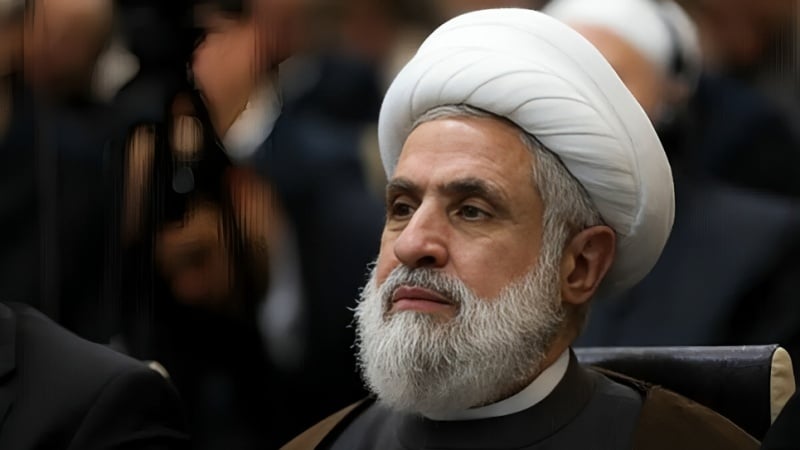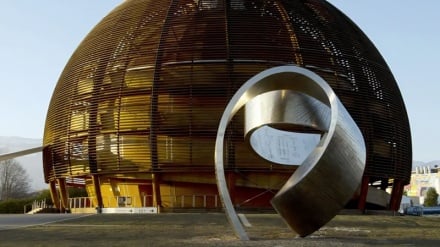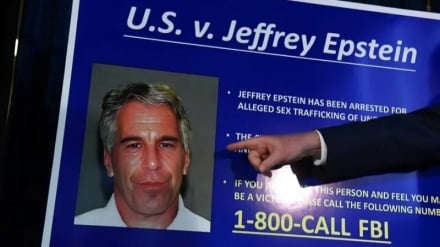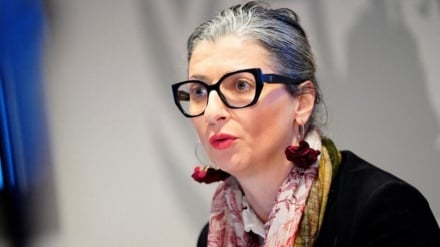Hezbollah Secretary-General: We will not wait forever
-

Sheikh Naeem Qassem, Secretary-General of Hezbollah
Pars Today – The Secretary-General of Hezbollah, in an interview with Al-Mayadeen network, discussed regional developments and the role of Iran and the Leader of the Islamic Revolution in advancing the goals of the Resistance Axis.
Sheikh Naeem Qassem, Secretary-General of Hezbollah, in a detailed interview published Thursday by Al-Mayadeen, shared his views on various issues including support for the Gaza war, the war in Lebanon, Hezbollah’s current political and military status, the pager incident, and Iran-related developments.
According to Pars Today, he stated: “Following the Zionist regime’s aggression against Gaza, a leadership council meeting was held in Hezbollah. The conclusion was to provide limited support to Gaza and monitor developments before making a final decision.”
He added: “A few weeks into the support operation, it was concluded that Hezbollah would not enter a full-scale war. The reason was that the desired objectives could be achieved without such a war.”
The Secretary-General of Hezbollah stated that the movement’s objectives from the support front included: engaging a large number of Israeli military forces in the northern region, forcing settlers to migrate in order to create social, economic, and security crises in northern occupied Palestine, and inflicting the highest possible number of casualties on Israeli soldiers.
Hezbollah had no prior knowledge of Operation Al-Aqsa Storm
Sheikh Naeem Qassem noted that there had been no coordination with Palestinian resistance forces regarding Operation Al-Aqsa Stormed .
He stressed: “We had no prior knowledge of the operation, which is why we did not enter a full-scale war.”
He added that Hezbollah received a letter from the martyr Mohammad Deif, commander of the Qassam Brigades, stating that Hezbollah’s level of support for Gaza was sufficient and capable of achieving the intended objectives.
He further added that, based on available intelligence, even Tehran was unaware of the October 7th operation, and that some Hamas commanders outside Gaza also had no knowledge of it.
What was the story behind the pager explosions?
The Hezbollah Secretary-General explained: “In the case of purchasing pagers, a security gap was evident over the past year and a half. The explosives planted in the pagers were of a type that could not be detected with available tools.”
Qassem added that two days before the pager operation, suspicious signs emerged, including indications that the pagers had been broken—prompting Israel to carry out its operation earlier than planned. He stated that 1,500 additional booby-trapped pagers were also in Turkey, and, at the request of Najib Mikati, Lebanon’s interim Prime Minister from President Erdoğan, they were destroyed.
Sheikh Naeem Qassem described human infiltration within Hezbollah as very limited compared to the vast amount of intelligence gathered through surveillance, drones, and other technologies. He stressed that there has been no security breach, particularly among Hezbollah’s core members or internal leadership. He pledged that if such a breach were ever proven, the matter would be openly shared with the public.
Hezbollah’s response to developments following the Lebanon ceasefire
On the continued Zionist aggression in Lebanon after the ceasefire agreement, Sheikh Naeem Qassem warned:
“We will not wait forever.”
He reiterated that the current pressures would not achieve their intended goals and that Hezbollah would never surrender.
He said the group is in a stage of recovery and warned that if Israel attacks Lebanon, Hezbollah will fight back.
He dismissed Zionist claims of having destroyed 500 medium- and heavy-weapons depots belonging to Hezbollah, pointing out that such claims only refer to areas south of the Litani River:
“But Lebanon is vast,” he said. “And I don’t wish to go into detail.”
Iran’s role in supporting the Resistance
The Hezbollah Secretary-General highlighted Iran’s role in the war, saying Tehran had made a clear assessment:
If Iran entered the war, it would lead to U.S. involvement, which would ultimately benefit Israel—as Israel had been trying to draw America into the conflict.
He continued: “Therefore, it was better for Iran not to intervene, and continue its support through financial, military, political, and media means. These supports played a key role in our resilience and the endurance of the entire Resistance Axis.”
He further revealed that Imam Khamenei, the Leader of the Islamic Revolution, was closely following developments in Gaza and Lebanon on a daily basis, receiving constant updates and showing extraordinary attention to the issue.
Hezbollah’s stance on developments in Syria
Sheikh Naeem Qassem stated that the situation in Syria had impacted Gaza:
“When the Syrian government fell, its supportive role was ceased as well.”
He called the normalization of ties with the Zionist regime extremely dangerous and stressed that Syria must not enter this process.
Qassem affirmed: "We have great trust in the Syrian nation," stressing that "the Syrian nation will never accept normalization [with Israel] - this is both their responsibility and ours."
Referring to Israel’s ongoing occupation of Syrian land, Qassem said that Israel has occupied 600 square kilometers in the Golan Heights and Quneitra. But the Syrian government has done nothing about it.
They have left no military capability for Syria's army or government, yet continue their aggressions unabated."
He reiterated: "The Zionist regime is an insatiable, criminal entity - barbaric in its appetites - with America, the world's foremost tyrannical power, standing firmly behind it."
The Hezbollah Secretary-General went on to say that the party would not take any practical steps to change the Syrian government’s approach toward normalization of relations, as it has no ties with it. However, he emphasized that Hezbollah is, in principle, opposed to the process of normalization.
Lebanon’s internal affairs
The Hezbollah Secretary-General also addressed Lebanon’s internal situation and praised the positions of General Joseph Aoun, saying:
“From the very beginning, it was clear that he consistently emphasized the need for Israel to withdraw from Lebanon.”
He went on to say that these principles are the very same ones that Hezbollah believes in—principles rooted firmly in nationalism. He described the trinity of the army, the people, and the resistance as the current source of Lebanon’s strength, emphasizing that the world is now contemplating how to engage with Lebanon precisely because it is strong.
“If Lebanon were weak,” he added, “no one would pay attention to it.”
MG/ME


